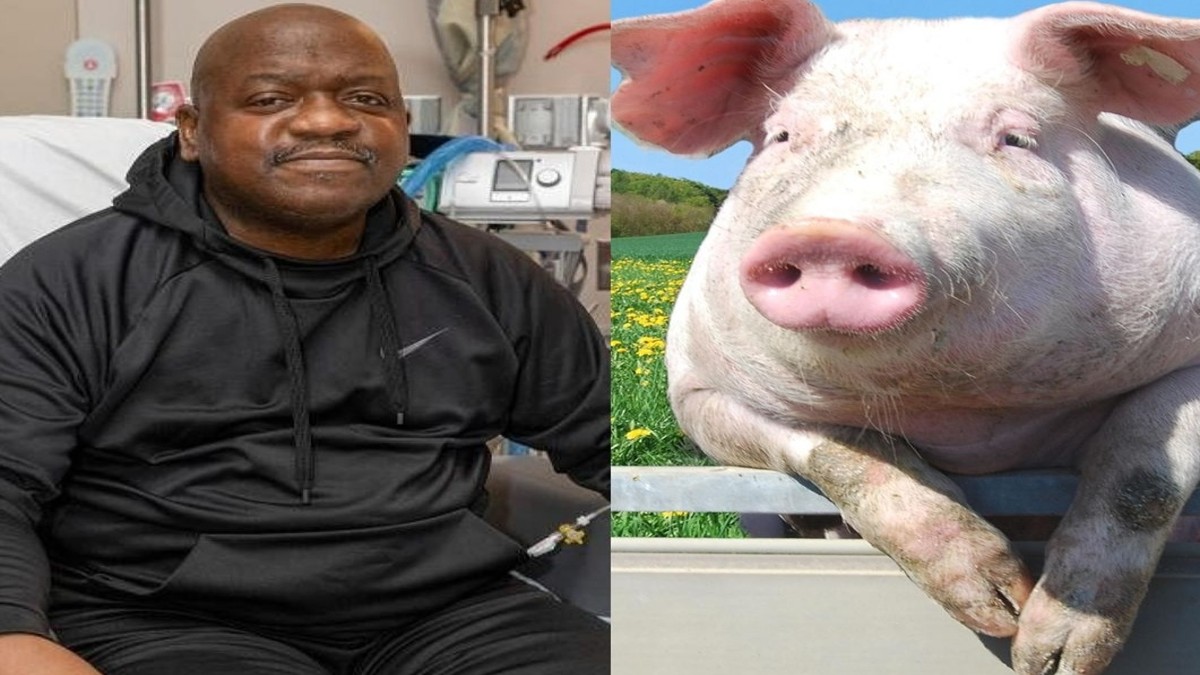Xenotransplantation
Xenotransplantation, the medical world was abuzz with both hope and caution when news broke of a groundbreaking xenotransplantation procedure involving a pig kidney. However, the recent death of the patient just two months after the transplant has cast a somber shadow over this pioneering field of medicine, prompting a closer examination of its complexities and ethical considerations.
Xenotransplantation, the transplantation of organs or tissues from one species to another, has long been hailed as a potential solution to the critical shortage of human organs for transplantation. With millions of individuals worldwide waiting for life-saving organ transplants, the prospect of utilizing organs from animals like pigs offers a glimmer of hope for those in need.
In this recent case, a patient received a pig kidney in what was hailed as a milestone achievement in xenotransplantation research. The procedure was carefully planned and executed, with extensive measures taken to minimize the risk of organ rejection and infection. Initial reports suggested promising signs of organ function and compatibility, sparking optimism among patients, healthcare professionals, and researchers alike.
However, tragedy struck when the patient succumbed to complications just two months after the transplant. The cause of death, while still under investigation, has reignited debates surrounding the safety, efficacy, and ethical implications of xenotransplantation.
One of the primary concerns associated with xenotransplantation is the risk of cross-species transmission of infectious diseases, known as zoonoses. Pigs, in particular, are susceptible to harboring viruses that could potentially be transmitted to humans through transplantation. Despite rigorous screening and preventive measures, the possibility of infectious transmission remains a daunting challenge in xenotransplantation research.
Furthermore, the immune response triggered by xenotransplantation poses another hurdle to overcome. Even with advancements in immunosuppressive therapies, the risk of organ rejection and the need for lifelong medication to suppress the immune system present significant concerns for patients and healthcare providers.
Ethical considerations also loom large in the realm of xenotransplantation. Questions about the welfare of animals used as organ donors, the potential for exploitation, and the allocation of limited healthcare resources raise complex moral dilemmas that require careful deliberation.
While the death of the xenotransplant patient is undoubtedly a setback for the field, it serves as a poignant reminder of the importance of thorough research, stringent safety protocols, and ethical scrutiny in advancing medical innovations. As scientists and policymakers navigate the path forward, transparency, accountability, and patient safety must remain paramount.
Ultimately, the quest for viable alternatives to human organ transplantation is driven by a shared commitment to saving lives and alleviating suffering. While the road ahead may be fraught with challenges, the pursuit of scientific progress and the promise of medical breakthroughs continue to inspire hope for a future where xenotransplantation may offer renewed possibilities for patients in need.

Certainly! Here are some additional lines to further develop the article:
Despite the setback, researchers and healthcare professionals remain undeterred in their pursuit of safer and more effective xenotransplantation techniques. Lessons learned from this case will undoubtedly inform future research endeavors, guiding the development of improved strategies for organ transplantation across species barriers.
The patient’s death underscores the need for comprehensive preclinical studies and rigorous evaluation of xenotransplantation protocols before they are translated into clinical practice. Long-term monitoring of transplant recipients and ongoing surveillance for potential complications are essential to ensure patient safety and mitigate unforeseen risks.
Moreover, public awareness and engagement are crucial aspects of the xenotransplantation discourse. Open dialogue about the benefits, risks, and ethical implications of this emerging field empowers individuals to make informed decisions about their healthcare and fosters greater trust in scientific advancements.
As the medical community grapples with the complexities of xenotransplantation, collaboration between researchers, clinicians, ethicists, policymakers, and patient advocates is essential to navigate the challenges ahead. By working together, we can strive to overcome obstacles, address ethical concerns, and advance the field responsibly, with the ultimate goal of improving patient outcomes and saving lives.
In the wake of this tragic outcome, it is imperative that we approach xenotransplantation with both optimism and caution, recognizing its potential while acknowledging the inherent risks and uncertainties. With continued dedication, innovation, and ethical stewardship, xenotransplantation may one day fulfill its promise as a transformative solution for individuals in need of life-saving organ transplants.


















I do agree with all of the ideas you’ve presented in your post. They’re very convincing and will certainly work. Still, the posts are too short for newbies. Could you please extend them a little from next time? Thanks for the post.
Well done! This article provides a lot of value.